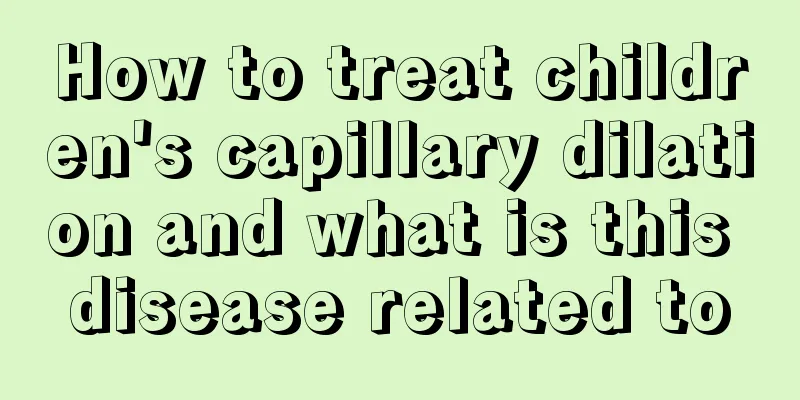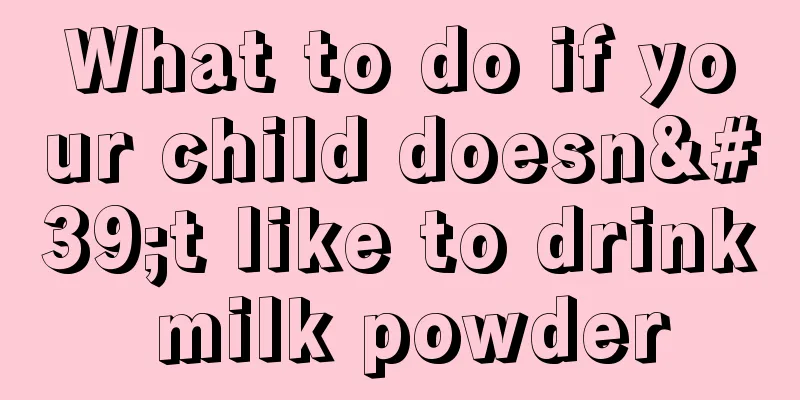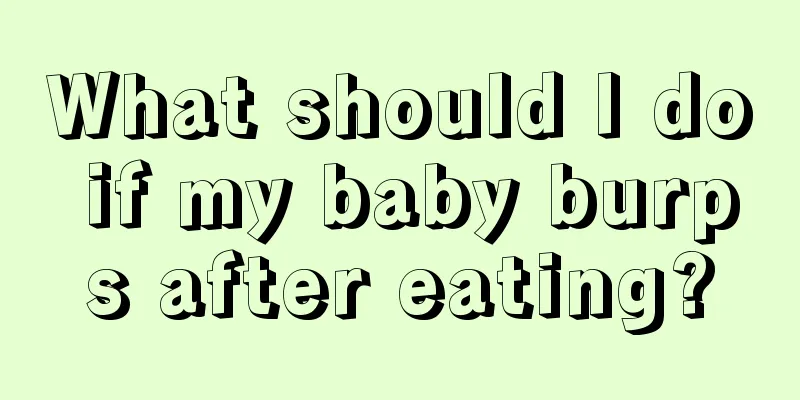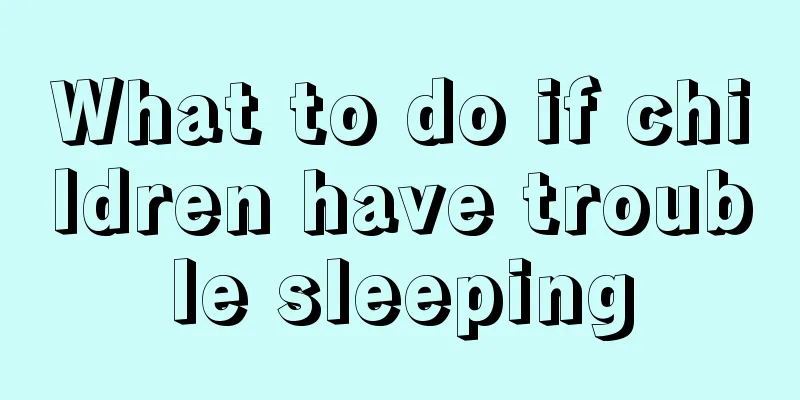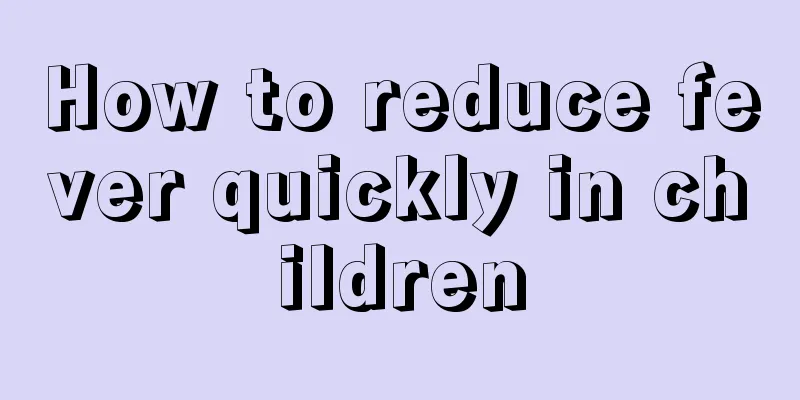What to do if your child vomits after eating
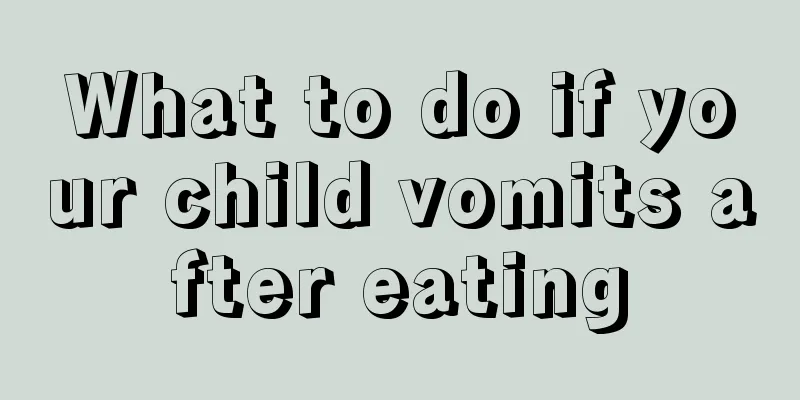
|
Nowadays, most families have only one baby, so they pay more attention to the baby and are always worried about the child's health, nutrition and other issues. Even some parents will add complementary foods to their very young babies, which is not good for the baby's health and may cause problems with the child's digestive function and cause the child to vomit after eating. So what should you do if your child vomits after eating? Let’s find out together. If your baby vomits after eating, don't worry if his bowel movements are normal and he has no fever or other discomfort. It is recommended to reduce the amount of complementary food or fruit appropriately, and try to avoid baby activities after feeding the baby. Baby vomiting is due to reverse peristalsis of the esophagus, stomach or intestines, accompanied by strong contraction of the abdominal muscles and diaphragm, which forces the contents of the esophagus or stomach to pour out of the mouth. Vomiting can be caused by many reasons. The most common reason for babies is digestive tract problems. For vomiting itself, no special treatment is required. The most important thing is to find the cause of vomiting and then treat it accordingly. The other is to prevent dehydration of babies caused by frequent vomiting. "The baby finds eating very painful, feels like there is something in the throat and wants to vomit, and the whole body turns red after eating." These are all typical manifestations of acute food allergies. For babies who vomit after eating, here are some suggestions for parents on adding complementary food: 1. Don’t choose mixed food; 2. Do not feed the baby with food that the parents do not normally eat or rarely eat; 3. The types and tastes of food should gradually become closer to those of parents. Not all commercial foods are suitable for your children, so you must have choices! Adding complementary foods too early or too late will have adverse effects on the baby's health. Adding foods that are not suitable for babies to digest too early will cause vomiting and diarrhea due to their immature digestive function, leading to digestive disorders. After 9 months, the nature of baby food should be diversified: thick juice, puree, finely chopped, and soft chunks. This helps your baby learn to chew. If the baby has a poor acceptance of coarse food, you can make it more refined for the baby. Because every baby has a different acceptance of complementary food, we should use the baby's own acceptance as the standard, gradually from paste to fine particles, and then to coarse particles, without having to prepare it in advance. However, if introduced too slowly, feeding problems such as reluctance to chew and vomiting may increase. Some solutions to children vomiting after eating have been explained above. In order to make your baby healthier, parents must pay special attention. Don’t worry about whether the baby eats too little or does not get enough nutrition. Giving the child too much food will cause gastrointestinal problems, which is not conducive to the healthy growth of the child. |
<<: The reason why the eight-month-old baby's tongue coating turns yellow
>>: What causes abdominal distension and vomiting in children?
Recommend
Why can't my child straighten his fingers?
The health of fingers is very important because i...
How to treat children's cough quickly?
Children's cough is generally caused by low i...
The child has a fever at night and is fine during the day
For children with low immunity, fever is a very c...
Infant intellectual development
Many elders are concerned about the healthy growt...
What to do if teenagers have trouble sleeping?
Teenagers are in the period of growing and studyi...
Baby's palms are hot but forehead is not hot
If the baby's palms are hot but his forehead ...
Walking posture of children with cerebral palsy
Cerebral palsy can greatly hinder the growth of a...
Why do children have late tooth replacement?
Every child will go through the process of changi...
What should I do if my child has a high fever?
In life, the most beautiful thing for a family is...
What to do if your child is clingy
Children have many different personalities, and m...
Reasons for your baby's crying
Many parents in the middle and late stages find i...
How to treat children’s indigestion and fever?
Parents want to cherish their children with all t...
What are the early symptoms of heart disease in children?
For parents, the health of their baby after birth...
What to do if your child has poor stress resistance?
Today's parents enroll their children in vari...
What kind of fruit is better for children to eat?
Nowadays, people pay attention to the reasonable ...

